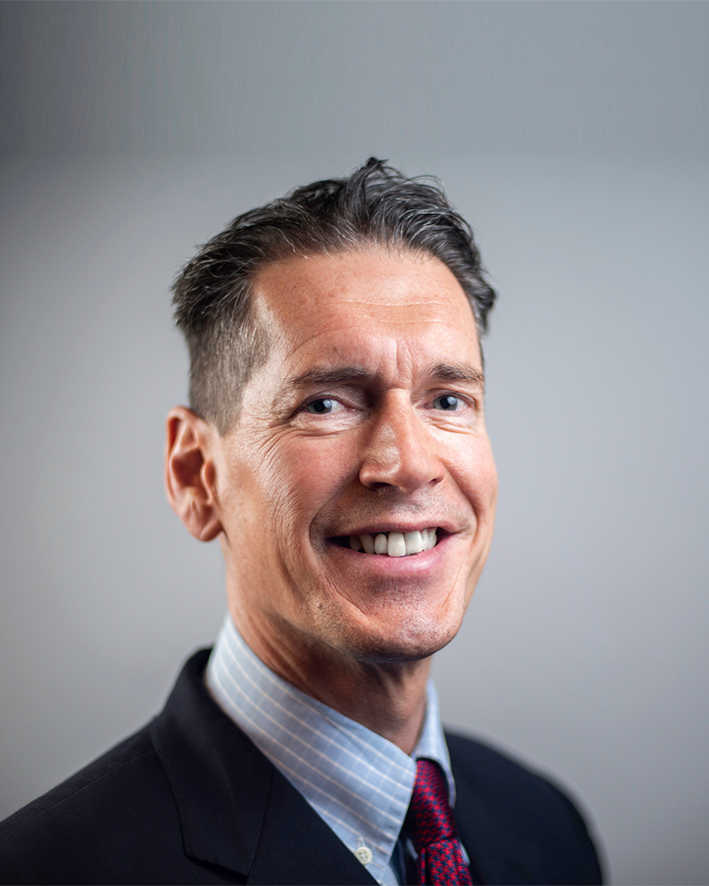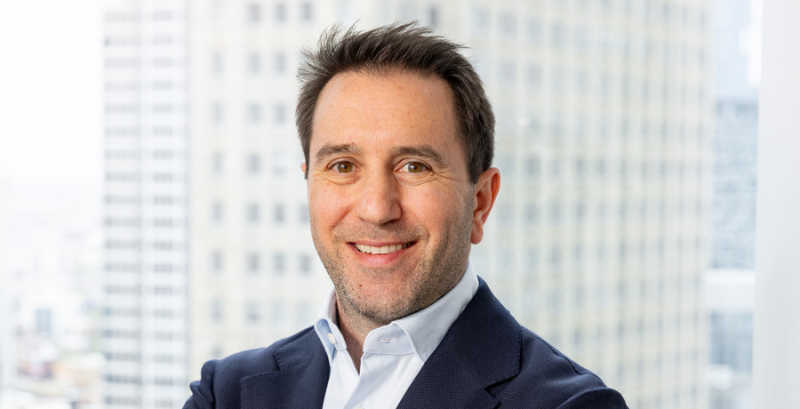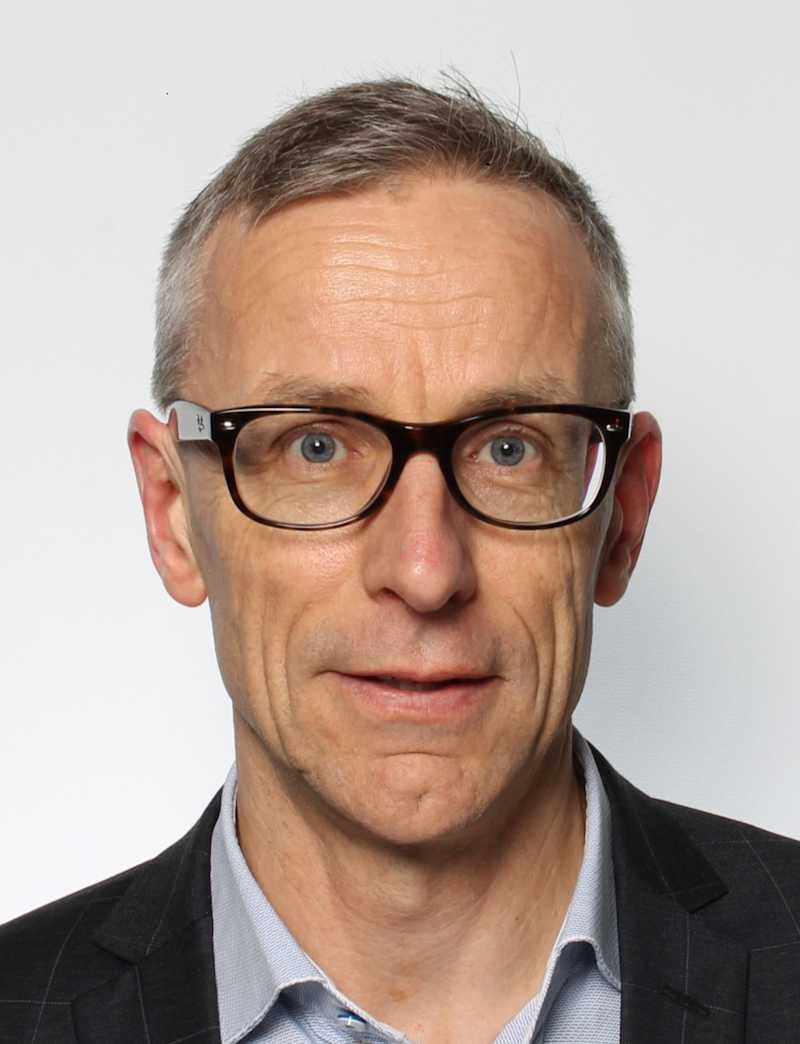Why patent dealmaking is all about people
Sisvel’s head of licensing Nick Webb shares highlights from his colourful career and explains the negotiation principles that have served him well through the years
By Jake Schindler
Nick Webb has been a part of Sisvel’s story since its earliest days. He left his native UK as a young man and quickly fell in love with Italy. After six years of running various businesses there, a chance meeting with Sisvel founder Roberto Dini put him on a course that would lead to a multi-decade career in IP licensing – with plenty of detours along the way.
Today, he heads up the Sisvel licensing team from Barcelona, and is tasked with overseeing licence negotiations across all the company’s programmes. He recently sat down with Sisvel Insights to discuss his long career with the firm and the dealmaking philosophy he has developed over the years.
How did you first get involved with Sisvel?
I was a partner in a company that ran language programmes for companies in Turin. Roberto Dini co-founded a course for university students interested in intellectual property and wanted to hire someone to teach “patent English”. The teacher we had lined up backed out at the last minute and I couldn’t find a replacement, so I had to go and teach the course myself – even though at the time I barely knew what a patent was. I guess it was destiny. I got to talking with Dini and he eventually asked me to come work for him and that was that. That was well over 30 years ago.
This was in the very early days of Sisvel, correct?
Yes, at that time Sisvel had acquired the patent portfolio of a company called Indesit, which had unfortunately gone into bankruptcy. In the very early days, Sisvel’s main activity was negotiating with RCA on behalf of its backers, the TV manufacturers of Italy. RCA had one of the industry’s largest patent portfolios back then, but we were able to save the Italian TV makers a significant amount of money using the Indesit portfolio as a counterweight.
A few years later, I decided to strike out on my own again. I started a business selling high end medical educational products to the pharmaceutical industry, and it did very well until a new law in Europe came along and significantly curbed spending in that sector. After a few years of ‘retirement’, Sisvel agreed to take me back. It was during this second stint that I got more involved with negotiating licence agreements. Five or six years later, wanderlust struck again, and I went off to see more of the world.
And when did your current tenure with Sisvel begin?
As strange as it may sound, in 2013 an agreement was reached, and I came back and ran Sisvel’s London office. At the time, there was a big effort to get our relatively new Wi-Fi and LTE programmes off the ground. This was not without setbacks, but both became a success. Fast forward a few years, to when Brexit happened, we decided to relocate to Barcelona, one of the reasons being it would have been difficult to stay for our European employees. I’ve been here ever since. I’m very happy in Catalonia – it’s a place where I can see myself finishing up my working life.
That’s only a very brief recap of my career with Sisvel. The company has had a colourful story over the years – I always say it would make a good TV series.
How would you sum up your dealmaking philosophy?
Patent licensing is just people. You’re talking to people about work that other people have done, and you can never lose sight of that. You need to understand who is sitting across from you and make an effort to figure out how you can make their lives easier within their organisation – ensuring that they have the tools and information to get internal buy-in.
If you go in and try to bully someone in today’s market, it’s not going to work. I’m a firm believer in building relationships, and all my biggest successes as a dealmaker have been based on that approach. You can legalise this job as much as you want, but at the end of the day it’s sales. And if you want to be a successful salesperson, you need the personal touch. If you rub somebody the wrong way, it’s going to make getting a deal a lot tougher.
You mentioned your biggest successes – what are the standout deals for you?
I would say the Wi-Fi deal we were able to do with Samsung under our Hera Wireless S.A. patent portfolio in 2018. That was a great example of the importance of relationship and trust-building from start to finish. We were ultimately able to find terms that worked for both sides and recognised the strength of our portfolio. Another highlight was the successful RPX Wi-Fi deal which followed that.
It really helps if you can get to a point where no matter where things stand on a given deal, the door is always open to meet, discuss and perhaps have dinner afterward. These kinds of relationships span multiple deals and can even continue on a personal level if your counterparts move to different companies.
And is the approach the same across different industries and geographies?
In Asia we would normally talk to the in-house IP team, whereas in the United States you are generally dealing with outside counsel. So that’s a little bit of a different dynamic. Building a relationship with an external lawyer isn’t going to damage you, but it’s probably not going to get you as far. Still, regardless of who you’re talking too, you will need to figure out how you can make their job easier – and it helps if you can be a human being.
And once you’ve built personal trust, how do you get a deal over the line?
Ultimately, you always have to make the person you’re talking to feel confident that what they are proposing to their superiors makes sense for the business and will reflect well on them as a negotiator. You don’t want your counterpart to bring a deal to their management that’s dead on arrival. That’s why trust is so important.
You need to be able to give the other side wins as well – whether on the numbers or on other terms of the agreement. The people we deal with are very smart. If you have a good relationship, you can have very constructive discussions on the finer details and find solutions that work for both sides.
What are the biggest frustrations for licensors in the current environment?
FRAND has come such a long way since the early days of SEP licensing. By and large it’s a good thing that there are more guidelines in this area. The frustration comes from the fact that, in my view, FRAND is a two-way street. But it only ever seems to be licensors who have the obligation to stay on that street, while others seem to do exactly what they want. I think we need more recognition that FRAND is not just about rates – it’s equally important that both parties show willingness to conclude a licence.
What do you look for in new hires to the licensing team?
Finding new people in licensing is tough because this is a niche market. We often hire people with a legal or technical background, but not always. If you’re a skilled salesperson who is good with people and a sharp strategic thinker, with the correct training that can be a great recipe for success as well. Communication skills are really important too. When we write to a potential licensee, we don’t send them a long, legalistic letter; we try to explain our value proposition succinctly and in clear business terms.
Again, it all goes back to people skills. When we train new members of the team, I always hold up a patent and ask them to explain what it is. Yes, it’s a technical solution to a technical problem. Yes, it’s a legal right. But more importantly, I tell them it’s an extension of a person, or a group of people. A technical person who defines a problem, a researcher who develops a solution, a patent attorney who drafts the patent, examiners around the world who review it, implementers who learn from it and put it into practice and people like us who negotiate licences that enable the cycle to start again. All these different people have left their fingerprints on any given patent, and that’s what makes this a people business.
Quickfire …
What’s a typical weekend activity for you?
I’m a family man and really just enjoy the company of my wife and son and going on walks with the dog. We also enjoy visiting the Costa Brava by boat, certainly beats getting caught in the traffic. I have a mountain bike and live close to some wonderful trails, but I enjoy firing up the BBQ too much and very rarely get to use the bike.
What should someone with a free day in Barcelona make sure they see, do and eat?
Wow, that’s a tough one. There’s so much to see and do here but of course at the end of the day it boils down to personal taste. That said, I would definitely recommend a visit to Park Güell and a stroll along the streets of the Gothic Quarter. While there, a great place to stop for brunch is Lato in the Born area – always a pleasure.
Where is your favourite holiday destination?
I can’t really say I have a favourite. I’ve been to some gorgeous places in my life although there are some places I haven’t seen that I would like to visit one day. I’d like to tour Australia and I think I’d enjoy Cuba.
What’s the most memorable live performance you’ve witnessed?
This one is easy, way back I had the pleasure to join thousands of others at Wembley Stadium to watch the London leg of the Rolling Stones “Start Me Up” tour. I have seen them a total of three times now, but the first was by far the best.
What’s your favourite TV series?
I recently binge watched The Gentlemen by Guy Ritchie. I also enjoyed Narcos – perhaps there’s a worrying trend there. Maybe I shouldn’t mention that I also like the Tulsa King.
What’s the best piece of professional advice you’ve received?
So many people love the sound of their own voice and sometimes speak simply because they think they should. Whenever I witness this, it always makes me think of a very special friend who used to say: “Connect your brain to your tongue before opening your mouth.” Harsh but so right. When talking about career choices with my son I will often tell him: “Find something you love doing, then find someone to pay you for doing it.” I think I followed my own advice on that one.


